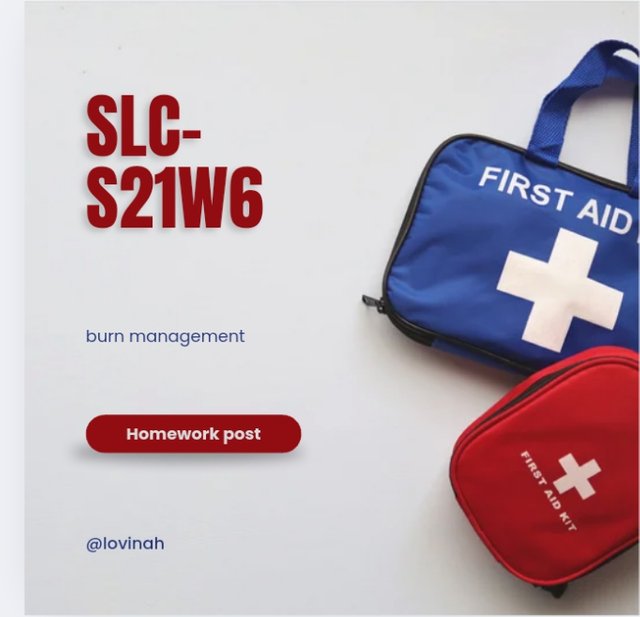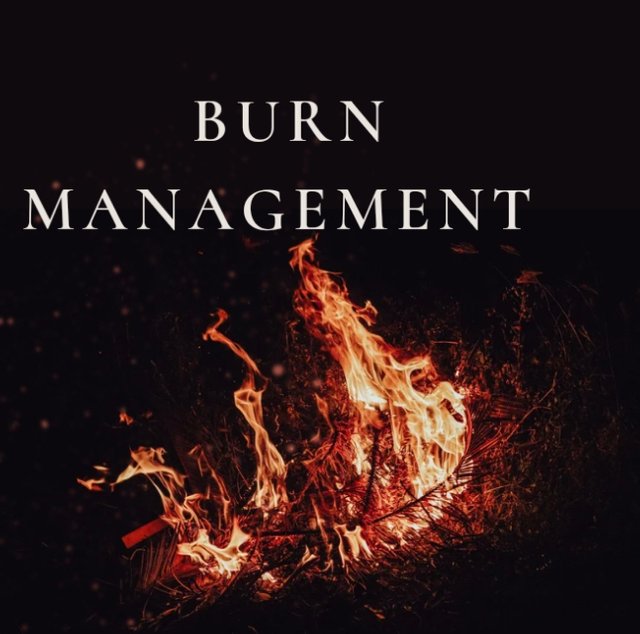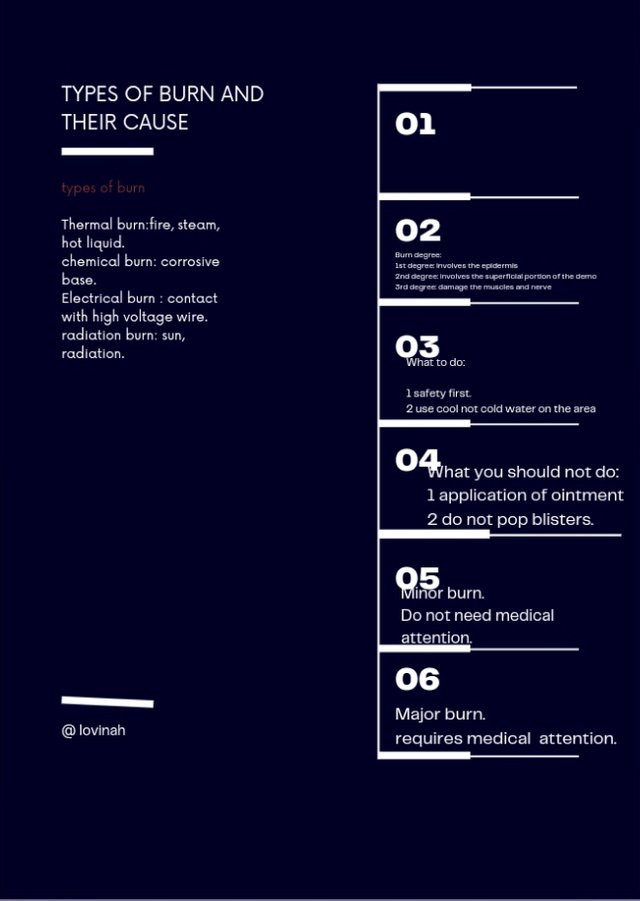"SLC21/WK6: Understanding Burns: Types, Causes, and First Aid Responses "
 made in canva
made in canva
Q1:
Write a detailed first aid response for the following scenario:
**" You witness a child accidentally spilling hot tea on their arm. What immediate steps will you take? What actions will you avoid?
Include considerations for burn severity and explain your reasoning.
What i should do
I will stop the contact by immediately taking the child away from the heat source and immediately take clothing off the affected area to stop further burning before taking off the clothes i will make sure it is not stick to the burnt area to avoid worsening the situation.
the child is scare and in pain therefore by attempting to rub the affected area which my pulled out the skin so i will make sure to calm the child and make the child sit down i
Hold the area under cool not cold running water for about 10 minutes, after that i will Cover the burn in a dry, clean, non-stick bandage or cloth.
But if the burn is severe i will call the emergency line while i try to calm the casualty while rendering all the necessary first aid activities on till help arrived, reasons is because the burn may be a very severe case that involves all the layers of the skin that need serious medical attention.
what i should not do
• i will not apply any thing like butter, oils or ointments to cover the burn as they may retain the heat and make the injury worse.
• i wont use ice or iced water as this can make the burn injury worse and also cause the child's body temperature to drop.
• not to force a cloth that is stick to the skin after burn as this may injure the tissue even more.
Child's symptoms and age
Depending on the child age and level of understanding
after a burn injury,the child may feel confused, upset and jumpy. This is completely normal, i will try to offer emotional support to the child to help keep calm after first aid was successful administered.
Reasons
My aim in all the above process is to make sure the child is out of danger and safe offering a solution to the injury, so since the casualty is young he/she might panic so in this case emotional support is essential.
Q2:
"A worker in a warehouse suffers an electrical burn after touching exposed live wires. The burn site shows entrance and exit points, with damage to the skin and underlying tissues. What are the immediate first aid actions you should take, and what critical steps should you avoid? How does this differ from treating thermal burns?"
This a very serious case and should be acted on immediately so i will take the following steps;
• scene safe, I will make sure not to touch a person who is still in contact with an electrical current, if possible
and within my powers i could use a wood to off the switch before trying to detached the casualty from also I won't go near the high voltage wire.
after making sure that they high voltage wire are totally turn off and it's safe to touch the casualty i will take the casualty out of that scene to a safer space to ensure safety for myself as well
• Response I will gently touch and talk to the person If there is no response i will check the heart beat to know if CPR should be administered.
Treatment
• I will begin CPR if the person shows no signs of circulation, such as breathing, coughing or movement.
• Try to prevent the injured person from becoming chilled, this could be very dangerous.
• i will assess the injury to confirm what degree of of burn it is to know if the casualty needs immediate medical attention
• I will control bleeding, if any, by applying mild pressure around the burn. The use of bandage could also be used.
What to avoid
• avoid direct contact with a person that is still in contact with electric.
• trying to remove clothing or try to clean the burned area.
• moving the casualty unnecessarily unless the casualty is in immediate danger.
• avoid the use of blanket or towel to cover the person because loose fibers can stick to the burn.
Difference Between Electrical Burns And Thermal Burns
Thermal burns;
• use of water is helpful and it is standard practice.
• it does not have entry and exit point damage it only has one place of damage.
• in most cases it can be handled without seeking medical attention because it is less risky.
• it can only affect and damage skin tissues.
Electrical Burns;
• the use of water is not required for this type of burns.
• the presence of entry and exist points that shows damages are visible.
• it can be disastrous and required medical attention.
• it affects both the tissue and the internal organs.
Q3:
"A worker in a factory accidentally spills a strong acid on their arm, causing immediate pain, redness, and blistering. A colleague tries to wash it off with water but notices the burn spreading."
a. Identify the type of burn.
This is a Chemical burn it a type of burn that happens when the skin come in contact whit a harsh substance one of which is acid.
b. What went wrong during the initial first aid?
The casualty was in distress and the first respondent was in panic because of this the first respondent did not wash the affected area long enough to neutralize the chemical causing it to spread even more damaging the tissue more than the initial attack.
c. Propose the correct first aid steps and explain why each step is important..
• Calm and focus; as a first respondent I will not need to panic this might cause my brian to loose forget and forget important steps to take.
• Protective majors wearing a glove I will cut off any clothing and accessories from the casualty rather than pulling it off through the head to prevent further damage to the effected area.
• Neutralize process rings they affected area in a running water for about 10 to 15 minutes to be able to neutralize a acid if a running water is not available I would use enough water so that it could be neutralized and to avoid further spreading because if they acid is not neutralized it will continue to spread.
• seek medical attention acid attack can be very dangerous and even deadly so after I rendered the first aid to the victim I will make sure to call the emergency care service because the victim might need a serious medical attention or even surgery.
Q4:
You are a first responder in a rural area. Two people are injured in a house fire:
Person A has a large area of third-degree burns but is conscious and calm.
Person B has second-degree burns on both legs and is in severe pain.
You can only help one person immediately due to resource constraints.
Whom do you prioritize, and why? Support your decision with medical and ethical reasoning.
 made in canva
made in canva
medical reasoning
VictimA
This person suffers a third degree burn this burn has probably destroyed the epidermis and dermis, this third degree burn may also have damaged the underlying bones, muscles, and tendons.
Now about the victim being clam with no sign of distress is because there is no sensation in the area since the nerve endings are destroyed, this is the most dangerous of all because a shock attack could kick in and the life of the victim would be in life.
VictimB
A person with a second degree burn has a high change of survival than the one with the third degree burn, this person can be in severe pain because they epidermis and demise has been tampered with causing striking pain but likely not a the verge of death.
Ethical reasoning
The major aim is to safe a life third-degree burn is a serious injury that requires immediate medical attention no need to delay or wait to visit the emergency room after a third-degree burn as they can cause shock and be life-threatening if left untreated.
So I will prioritize and make sure that victim A is attended to and get to safety First before victim B.
Create an infographic on burn management. Include the following:
a. Types of Burns and Their Causes (Electrical, Thermal, etc)
b. Different types of burns (1st, 2nd, and 3rd degree)
c. First aid steps for minor and major burns
d. What NOT to Do During Burn First Aid." Use visuals and short explanations for each point.
 made in canva
made in canva
Am inviting @dequeen @blessedbee @goodybest to join this contest thank you.
Student Name: @lovinah
Overall grade: 7.9
Plagiarism Check: Pass
AI Use: No
General Feedback: The student has shown a good understanding of this week's course. There were a few shortcomings which I'm sure will be avoided in the upcoming posts.
Thank you.
Regards,
@huzaifanaveed1
Thank you for the review.
I will try to touch all areas in my next assignment.